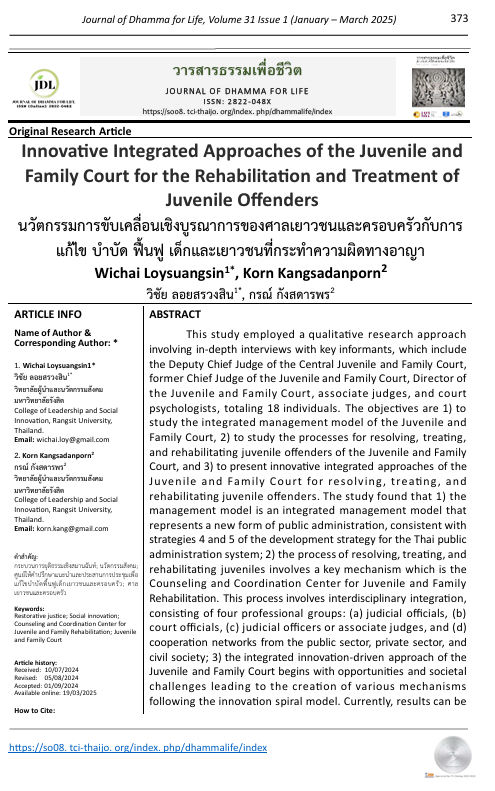Innovative Integrated Approaches of the Juvenile and Family Court for the Rehabilitation and Treatment of Juvenile Offenders
Main Article Content
Abstract
This study employed a qualitative research approach involving in-depth interviews with key informants, which include the Deputy Chief Judge of the Central Juvenile and Family Court, former Chief Judge of the Juvenile and Family Court, Director of the Juvenile and Family Court, associate judges, and court psychologists, totaling 18 individuals. The objectives are 1) to study the integrated management model of the Juvenile and Family Court, 2) to study the processes for resolving, treating, and rehabilitating juvenile offenders of the Juvenile and Family Court, and 3) to present innovative integrated approaches of the Juvenile and Family Court for resolving, treating, and rehabilitating juvenile offenders. The study found that 1) the management model is an integrated management model that represents a new form of public administration, consistent with strategies 4 and 5 of the development strategy for the Thai public administration system; 2) the process of resolving, treating, and rehabilitating juveniles involves a key mechanism which is the Counseling and Coordination Center for Juvenile and Family Rehabilitation. This process involves interdisciplinary integration, consisting of four professional groups: (a) judicial officials, (b) court officials, (c) judicial officers or associate judges, and (d) cooperation networks from the public sector, private sector, and civil society; 3) the integrated innovation-driven approach of the Juvenile and Family Court begins with opportunities and societal challenges leading to the creation of various mechanisms following the innovation spiral model. Currently, results can be seen in the final stage, which is systemic change, measured by the continuous reduction in the number of cases and repeated offenses by juvenile offenders in criminal cases.


